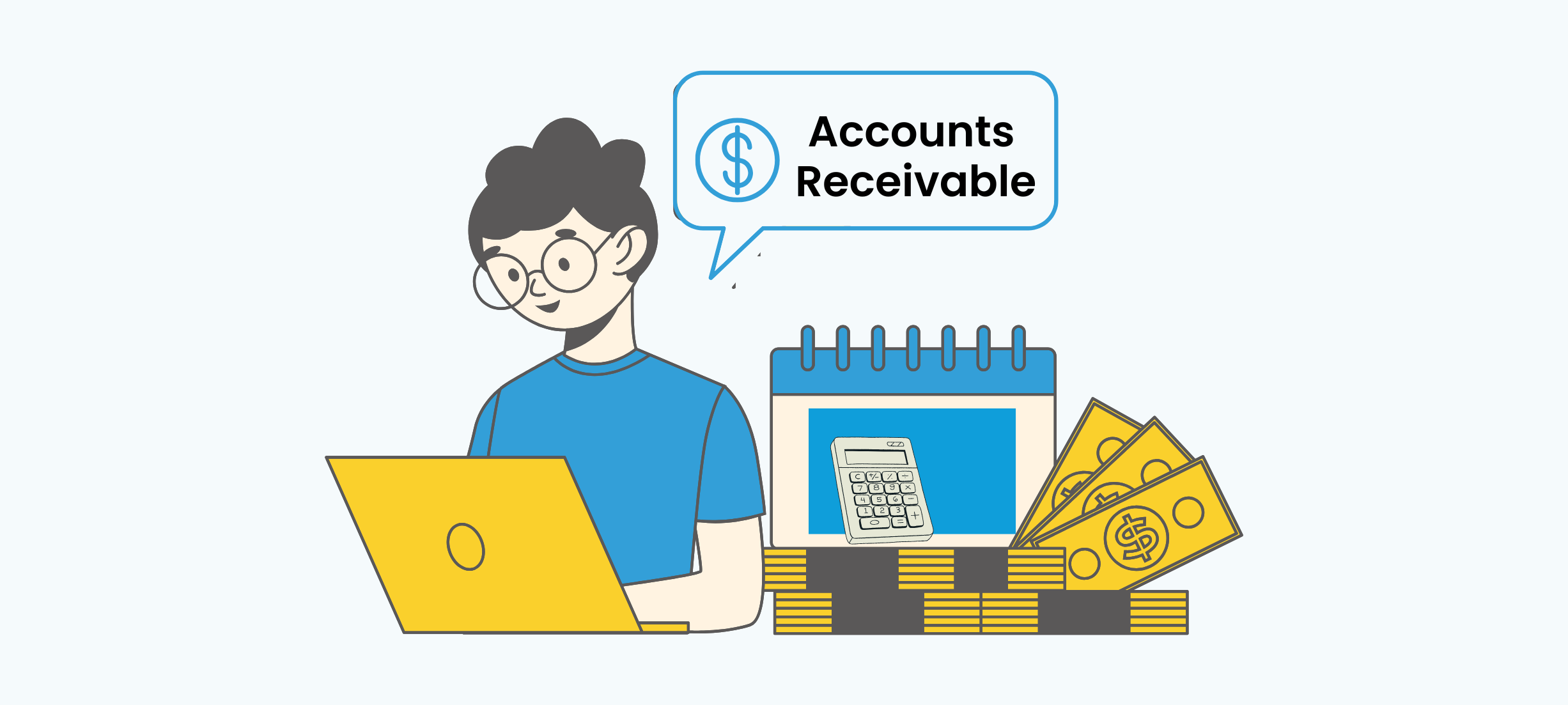
Running a restaurant is more than just preparing delicious dishes and welcoming guests with a smile. Behind the scenes, there's a lot of work that needs to be done, especially when it comes to managing finances. This is where outsourced accounting firms for bookkeeping services come in. Below are the points where you will explore why restaurant owners need bookkeeping services and how they can benefit from them.
Restaurant accounting is the process of keeping track of a restaurant's financial transactions. It involves recording income, expenses, and all monetary activities related to the business. Accurate accounting is crucial for understanding the financial health of a restaurant and making informed decisions.
When it comes to managing the financial side of your restaurant, choosing the right accounting method is essential. The two primary methods to consider are cash accounting and accrual accounting, and the choice largely depends on your restaurant's annual revenue.
Cash accounting is the go-to method for many restaurants, especially those with less than $1 million in annual revenue. This approach allows businesses to record their income when cash is physically received from services provided or when expenses and costs are paid. For restaurants and bars that deal with a significant amount of cash on a daily basis, cash accounting is often the preferred choice. It's simple, straightforward, and aligns with the immediate nature of restaurant transactions.
Under cash accounting, if a customer pays for their meal with cash, that revenue is recorded immediately. Likewise, if you pay your suppliers in cash for ingredients or settle utility bills, those expenses are recorded at the time of payment.
For restaurants with annual revenues exceeding $1 million, switching to accrual accounting may be the better option. Accrual accounting records financial transactions as they occur, regardless of whether you've received payment or not. This method provides a more comprehensive and detailed view of your restaurant's financial activities.
Accrual accounting allows you to analyze your restaurant's operations in a different way. It captures income when it's earned (even if the payment is delayed) and records expenses when they are incurred, irrespective of when the bills are paid. This method offers a more accurate representation of how your income is generated, how expenses are tied to your revenue, and how financial activities are interconnected.
Proper bookkeeping is the backbone of any successful restaurant's financial management. It's not as complex as it might sound, and with a bit of organization, you can keep your restaurant's financial health in tip-top shape. Here's a closer look at the steps involved:
Imagine this as keeping a diary for your restaurant's money. Every day, you need to jot down all the money that comes in and goes out. This includes not just the sales you make but also the money you spend on ingredients, paying your staff, utility bills, and any other expenses. The key here is to be diligent and record everything accurately. This step helps you understand where your money is coming from and where it's going.
Think of receipts as the evidence of your financial transactions. Whether it's a receipt for buying fresh vegetables or one for fixing the kitchen sink, keep them all in one place. This makes it easier to match your expenses with your recorded transactions. Invoices, bills, and financial documents should also be neatly organized. Being organized with your receipts is like having a neat filing system for your restaurant's finances.
Inventory refers to all the ingredients and supplies you have in your kitchen and restaurant. It's crucial to keep a close eye on this because you don't want to run out of key ingredients when customers are ordering their favorite dishes. Regularly check what you have in stock and what needs to be replenished. This helps you avoid overstocking (which saves you money) or running out of essential items (which can upset your customers).
Reconciling bank statements might sound intimidating, but it's like making sure all the pieces of a puzzle fit together perfectly. Compare your bank statements with your records to make sure they match. This helps you catch any discrepancies or mistakes early on. It's like double-checking your math homework to ensure you didn't make any errors.
Imagine you're running a restaurant, and every day, you prepare delicious dishes for your customers. To make those dishes, you need ingredients like meat, vegetables, spices, and more. These ingredients have a cost, and that cost is an essential part of running your restaurant. This cost is what we call the "Cost of Goods Sold" or COGS.
In simple terms, COGS is like the bill you get from the grocery store for all the food you've bought to make your dishes. It's the money you spend on ingredients and other items directly related to creating the meals you serve.
Mistakes in restaurant accounting can lead to financial troubles. Some common errors to avoid include failing to record all expenses, mixing personal and business finances, and neglecting regular financial reviews.
Consider hiring a professional bookkeeper or accountant with experience in the restaurant industry.
Invest in restaurant-specific accounting software to streamline the process.
Reconcile your financial records frequently to catch any discrepancies early.
Keeping good records in your restaurant's books can be helpful, and here are some reasons why:
1. Understanding your finances
When you do good bookkeeping, it's like having a clear map of where your money is coming from and where it's going. You get to see the full picture of your restaurant's finances, which is super important.
2. Following tax rules
Nobody likes surprises, especially not from the taxman! With proper bookkeeping, you make sure you pay the right amount of taxes, and you can even claim deductions that can save you some money.
3. Making smart choices
Imagine if you were playing a game, and you had all the rules and scores right in front of you. That's what good bookkeeping does for your restaurant. It gives you all the info you need to make wise decisions. For instance, you can figure out which dishes are popular and which ones aren't, so you can improve your restaurant's menu and make more money.
4. Trust from investors
If you ever want to get help from investors or borrow money for your restaurant, having a clean financial record is a big plus. It shows that you're organized and serious about your business, which makes people more confident about investing in your restaurant.
In the restaurant business, bookkeeping is not just about balancing the books; it's about ensuring the success and longevity of your establishment. With accurate financial records, you can make sound decisions, control costs, and ultimately provide your customers with the best dining experience possible.
Good bookkeeping also helps you see how well your business is doing, so you can make smart decisions. You can also hire a bookkeeping outsourcing company like us. We provide top-notch accounting services that will help you manage your finances accurately without any meetings. There is no need to go out, and you can hire a team for your bookkeeping. No matter if you lost your previous transcript, we would cover all the data and make your books ready. Contact us today, and we will keep your finances up to date.
Running a restaurant is more than just preparing delicious dishes and welcoming guests with a smile. Behind the scenes, there's a lot of work that needs to be done, especially when it comes to managing finances. This is where outsourced accounting firms for bookkeeping services come in. Below are the points where you will explore why restaurant owners need bookkeeping services and how they can benefit from them.
Restaurant accounting is the process of keeping track of a restaurant's financial transactions. It involves recording income, expenses, and all monetary activities related to the business. Accurate accounting is crucial for understanding the financial health of a restaurant and making informed decisions.
When it comes to managing the financial side of your restaurant, choosing the right accounting method is essential. The two primary methods to consider are cash accounting and accrual accounting, and the choice largely depends on your restaurant's annual revenue.
Cash accounting is the go-to method for many restaurants, especially those with less than $1 million in annual revenue. This approach allows businesses to record their income when cash is physically received from services provided or when expenses and costs are paid. For restaurants and bars that deal with a significant amount of cash on a daily basis, cash accounting is often the preferred choice. It's simple, straightforward, and aligns with the immediate nature of restaurant transactions.
Under cash accounting, if a customer pays for their meal with cash, that revenue is recorded immediately. Likewise, if you pay your suppliers in cash for ingredients or settle utility bills, those expenses are recorded at the time of payment.
For restaurants with annual revenues exceeding $1 million, switching to accrual accounting may be the better option. Accrual accounting records financial transactions as they occur, regardless of whether you've received payment or not. This method provides a more comprehensive and detailed view of your restaurant's financial activities.
Accrual accounting allows you to analyze your restaurant's operations in a different way. It captures income when it's earned (even if the payment is delayed) and records expenses when they are incurred, irrespective of when the bills are paid. This method offers a more accurate representation of how your income is generated, how expenses are tied to your revenue, and how financial activities are interconnected.
Proper bookkeeping is the backbone of any successful restaurant's financial management. It's not as complex as it might sound, and with a bit of organization, you can keep your restaurant's financial health in tip-top shape. Here's a closer look at the steps involved:
Imagine this as keeping a diary for your restaurant's money. Every day, you need to jot down all the money that comes in and goes out. This includes not just the sales you make but also the money you spend on ingredients, paying your staff, utility bills, and any other expenses. The key here is to be diligent and record everything accurately. This step helps you understand where your money is coming from and where it's going.
Think of receipts as the evidence of your financial transactions. Whether it's a receipt for buying fresh vegetables or one for fixing the kitchen sink, keep them all in one place. This makes it easier to match your expenses with your recorded transactions. Invoices, bills, and financial documents should also be neatly organized. Being organized with your receipts is like having a neat filing system for your restaurant's finances.
Inventory refers to all the ingredients and supplies you have in your kitchen and restaurant. It's crucial to keep a close eye on this because you don't want to run out of key ingredients when customers are ordering their favorite dishes. Regularly check what you have in stock and what needs to be replenished. This helps you avoid overstocking (which saves you money) or running out of essential items (which can upset your customers).
Reconciling bank statements might sound intimidating, but it's like making sure all the pieces of a puzzle fit together perfectly. Compare your bank statements with your records to make sure they match. This helps you catch any discrepancies or mistakes early on. It's like double-checking your math homework to ensure you didn't make any errors.
Imagine you're running a restaurant, and every day, you prepare delicious dishes for your customers. To make those dishes, you need ingredients like meat, vegetables, spices, and more. These ingredients have a cost, and that cost is an essential part of running your restaurant. This cost is what we call the "Cost of Goods Sold" or COGS.
In simple terms, COGS is like the bill you get from the grocery store for all the food you've bought to make your dishes. It's the money you spend on ingredients and other items directly related to creating the meals you serve.
Mistakes in restaurant accounting can lead to financial troubles. Some common errors to avoid include failing to record all expenses, mixing personal and business finances, and neglecting regular financial reviews.
Consider hiring a professional bookkeeper or accountant with experience in the restaurant industry.
Invest in restaurant-specific accounting software to streamline the process.
Reconcile your financial records frequently to catch any discrepancies early.
Keeping good records in your restaurant's books can be helpful, and here are some reasons why:
1. Understanding your finances
When you do good bookkeeping, it's like having a clear map of where your money is coming from and where it's going. You get to see the full picture of your restaurant's finances, which is super important.
2. Following tax rules
Nobody likes surprises, especially not from the taxman! With proper bookkeeping, you make sure you pay the right amount of taxes, and you can even claim deductions that can save you some money.
3. Making smart choices
Imagine if you were playing a game, and you had all the rules and scores right in front of you. That's what good bookkeeping does for your restaurant. It gives you all the info you need to make wise decisions. For instance, you can figure out which dishes are popular and which ones aren't, so you can improve your restaurant's menu and make more money.
4. Trust from investors
If you ever want to get help from investors or borrow money for your restaurant, having a clean financial record is a big plus. It shows that you're organized and serious about your business, which makes people more confident about investing in your restaurant.
In the restaurant business, bookkeeping is not just about balancing the books; it's about ensuring the success and longevity of your establishment. With accurate financial records, you can make sound decisions, control costs, and ultimately provide your customers with the best dining experience possible.
Good bookkeeping also helps you see how well your business is doing, so you can make smart decisions. You can also hire a bookkeeping outsourcing company like us. We provide top-notch accounting services that will help you manage your finances accurately without any meetings. There is no need to go out, and you can hire a team for your bookkeeping. No matter if you lost your previous transcript, we would cover all the data and make your books ready. Contact us today, and we will keep your finances up to date.
BookkeeperLive provides affordable bookkeeping and accounting services tailored to your business goals.





No calls, No meetings, No spam. Get started with a free trial by filling out the form.
*NDA included for your data protection.
Copyright © 2025 BookkeeperLive. All rights reserved. Privacy Policy Terms of Use
Enter the code, fill out the form, and unlock financial clarity with a free trial.